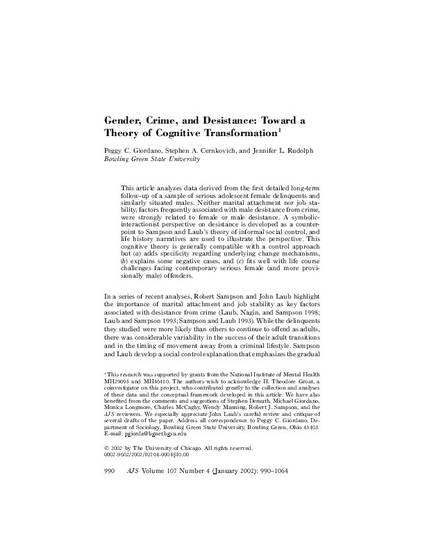
his article analyzes data derived from the first detailed long-term follow-up of a sample of serious adolescent female delinquents and similarly situated males. Neither marital attachment nor job stability, factors frequently associated with male desistance from crime, were strongly related to female or male desistance. A symbolic-interactionist perspective on desistance is developed as a counterpoint to Sampson and Laub's theory of informal social control, and life history narratives are used to illustrate the perspective. This cognitive theory is generally compatible with a control approach but (a) adds specificity regarding underlying change mechanisms, (b) explains some negative cases, and (c) fits well with life course challenges facing contemporary serious female (and more provisionally male) offenders.
Available at: http://works.bepress.com/peggy_giordano/3/
